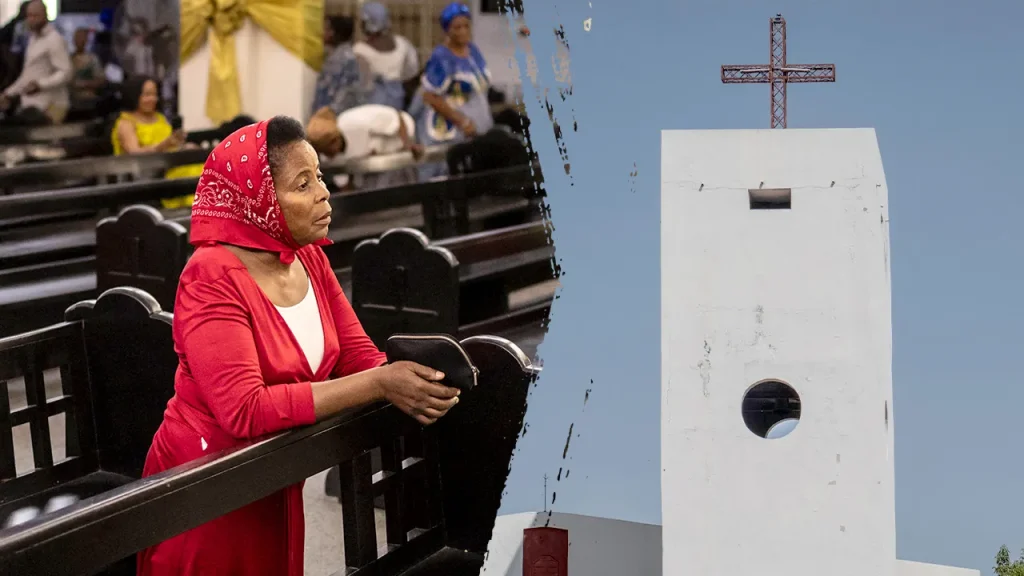Nigerian Christian Leader Welcomes Trump’s Pledge to End Religious Violence
In a heartfelt response to years of persecution and violence, Nigerian Christian leaders have expressed profound gratitude for President Donald Trump’s recent commitment to address the escalating attacks against Christians in the West African nation. This intervention comes as a ray of hope for a community that has endured devastating losses and systematic violence largely overlooked by the international community.
Andrew Gwaivangmin, who serves as executive secretary of the Nigeria Evangelical Missions Association, described Trump’s pledge as an “answered prayer” in his interview with Fox News. “We have cried out to the international community to force our government to do the right thing,” Gwaivangmin shared with palpable emotion. “This is the only time that America is focusing its attention on this violence in Nigeria.” His words reflect the desperation of Nigerian Christians who have watched their communities suffer through a decade of intensifying attacks, particularly in the northern regions of the country. The violence, perpetrated largely by Islamic militants including Fulani fighters and Boko Haram, has claimed countless lives and displaced entire communities, leaving a trail of widows, orphans, and demolished churches in its wake.
The situation reached international attention when Trump took to Truth Social in November, threatening to send U.S. troops “guns-a-blazing” into Africa’s most populous nation to “completely wipe out the Islamic Terrorists who are committing these horrible atrocities.” He further warned he would halt all aid and assistance if the violence persisted. This forceful stance prompted a swift response from Nigerian President Bola Tinubu, who defended his administration’s efforts to address security challenges affecting citizens across all faiths. “The characterisation of Nigeria as religiously intolerant does not reflect our national reality,” Tinubu countered on social media, insisting that “religious freedom and tolerance have been a core tenet of our collective identity.” However, for those living under the constant threat of violence, such assurances ring hollow against the backdrop of daily realities.
The persecution faced by Nigerian Christians has been extensively documented by organizations like Open Doors, which reports that attacks originally concentrated in the Muslim-majority northern states have begun spreading into the Middle Belt and southern regions. Their reports detail horrific accounts of targeted killings, sexual violence against women, and the destruction of Christian communities. Gwaivangmin’s testimony brings these statistics to life: “We’ve had casualties. We’ve had to bury our missionaries. Our missionaries have had to relocate.” With evident pain in his voice, he revealed, “Today, we have hundreds of widows whose husbands have been killed in their field as missionaries.” The human cost of this violence extends beyond immediate casualties, disrupting the social fabric of communities and leaving deep psychological scars on survivors.
For Christian leaders like Gwaivangmin, the most frustrating aspect has been the perceived indifference from their own government. “It’s not easy to be a Christian in Nigeria, and sadly, our government doesn’t seem to care to hold people accountable for all the killings, the mass killings that occur in this country,” he lamented. This sentiment reflects a broader feeling among Nigerian Christians that their suffering has been minimized or ignored by authorities who have failed to provide adequate protection or pursue justice for the perpetrators. The situation has created a crisis of confidence in governmental institutions meant to protect all citizens regardless of religious affiliation. When asked about potential U.S. military involvement, Gwaivangmin expressed openness to such intervention, though he acknowledged that American boots on the ground might not be realistic. Instead, he hopes for logistical support and equipment to strengthen Nigeria’s own security forces in their fight against extremist groups.
The plight of Christians in Nigeria represents one of the most severe, yet underreported religious persecution crises in the contemporary world. As the leader of the largest global missions organization for the Nigerian Christian church, Gwaivangmin’s appeal carries the weight of countless voices silenced by violence. While the effectiveness of international pressure remains to be seen, Trump’s attention to this issue has already accomplished something significant: it has amplified the voices of those suffering and placed their plight on the global agenda. For a community that has long felt forgotten in their suffering, this recognition alone represents a meaningful first step toward justice and peace. As the international community grapples with how best to respond to this crisis, the testimony of leaders like Gwaivangmin serves as a powerful reminder of the human faces behind the statistics – missionaries, families, and communities whose only desire is to practice their faith without fear.


